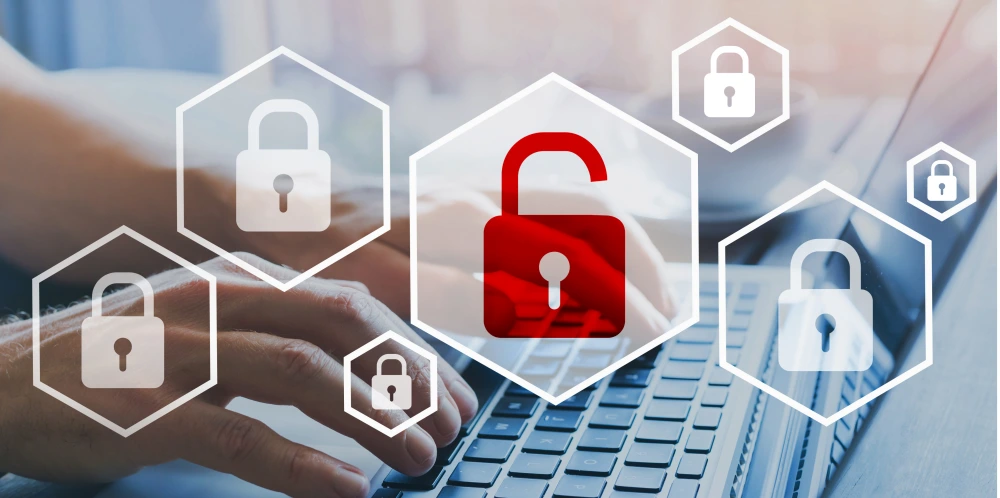Top Cybersecurity Best Practices for 2024
Staying ahead of cyber threats requires adhering to the latest cybersecurity best practices. DataGuard is here to guide you through essential practices like regular software updates, strong password policies, and employee training. By implementing these best practices, you can significantly reduce your risk of a cyberattack. Discover how DataGuard’s services can help you maintain a robust cybersecurity posture.
Regular Software Updates
Keeping your software up to date is one of the simplest yet most effective ways to protect against cyber threats. Software updates often include patches for security vulnerabilities that cybercriminals could exploit. Make it a habit to regularly check for and install updates for your operating systems, applications, and any other software you use.
Strong Password Policies
Passwords are the first line of defense against unauthorized access. Ensure that you and your employees use strong, unique passwords for each account. A strong password typically includes a mix of letters, numbers, and special characters. Additionally, consider using a password manager to keep track of your passwords securely.
Two-Factor Authentication (2FA)
Two-Factor Authentication (2FA) adds an extra layer of security by requiring a second form of verification in addition to your password. This could be a text message code, an authentication app, or even a fingerprint. Enabling 2FA on your accounts can significantly reduce the risk of unauthorized access.
Employee Training and Awareness
Human error is a common cause of security breaches. Regularly train your employees on cybersecurity best practices, such as recognizing phishing emails, creating strong passwords, and following company security policies. An informed and vigilant workforce is essential for maintaining cybersecurity.
Regular Backups
Regularly backing up your data ensures that you can recover your information in the event of a cyberattack, such as ransomware. Store backups in a secure, off-site location, and test them periodically to ensure they can be restored when needed. This practice can save you from significant data loss and downtime.
Implementing Firewalls and Antivirus Software
Firewalls and antivirus software are fundamental components of a robust cybersecurity strategy. Firewalls help block unauthorized access to your network, while antivirus software protects against malware and other malicious threats. Ensure that these tools are properly configured and regularly updated.
Monitoring and Managing User Access
Limit access to sensitive information based on user roles. Not everyone in your organization needs access to all data. Implementing strict access controls ensures that only authorized personnel can view or modify critical information. Regularly review and update these access controls as needed.
Securing Your Wi-Fi Networks
Ensure that your Wi-Fi networks are secure by using strong passwords and encryption. Avoid using default passwords for routers and other network devices, as these are often targeted by cybercriminals. Consider setting up a separate network for guests to prevent unauthorized access to your main network.
Regular Security Audits
Conduct regular security audits to identify vulnerabilities in your systems and processes. These audits help you stay ahead of potential threats and ensure that your cybersecurity measures are effective. DataGuard offers comprehensive security assessments to help you identify and address any weaknesses in your cybersecurity posture.
Incident Response Plan
Having an incident response plan in place is crucial for minimizing the impact of a cyberattack. This plan should outline the steps to take in the event of a security breach, including how to contain the threat, assess the damage, and recover your systems. Regularly review and update your incident response plan to ensure it remains effective.
How DataGuard Can Help
DataGuard is committed to helping you implement these best practices and more. Our Managed Security Awareness Training provides ongoing education and resources to ensure your employees are informed and prepared to handle cyber threats. Additionally, our Incident Response Retainer (IRR) offers immediate support in the event of a security breach, helping you manage and mitigate the impact effectively. With our expert guidance and advanced solutions, you can maintain a robust cybersecurity posture and stay ahead of evolving threats.
Adhering to the latest cybersecurity best practices is essential for protecting your digital assets in 2024. By regularly updating software, using strong passwords, enabling two-factor authentication, and training employees, you can significantly reduce your risk of a cyberattack. DataGuard is here to support you with comprehensive cybersecurity solutions that keep you secure and resilient. Stay informed, stay vigilant, and safeguard your digital future with DataGuard.
Back to Articles/Blog



